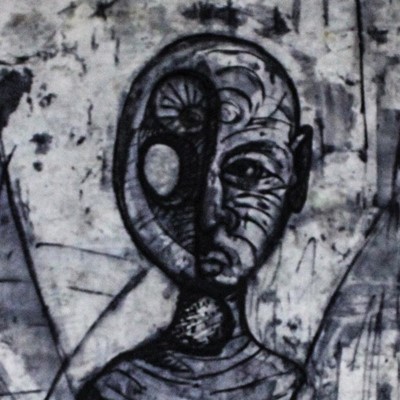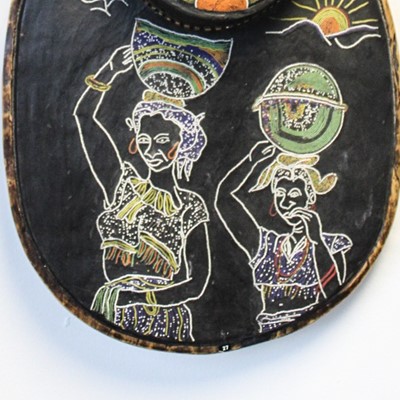Female Circumcision - Female Genital Mutilation (FGM)

What was previously (and sometimes still is) referred to as female circumcision is now known more accurately as female genital mutilation (FGM). Once commonly practiced in many African countries, FGM is gradually becoming culturally unacceptable and is illegal in many African and other countries, including Britain. Young women, some only infants at the time, endured a painful procedure whereby partial or all external female genitalia, such as the clitoris, labia and the vulva, were removed. It is now widely accepted that the ‘cutting’ inflicted long lasting physical and psychological damages. And yet, the practice still continues amongst some tribes.
FGM is most commonly carried out by older women when the female child is young and consent is taken from the parents, not the girl. The practice is often associated with cultural or religious reasons. Some people condone female genital cutting, insisting that it is beneficial for the well-being of the woman’s future husband and children, and also necessary to curb her promiscuity and maintain her ‘pureness’. Those women who do not undergo genital cutting are sometimes considered to be unclean and sexually promiscuous. However, research across the world, including many studies by Africans, has found that FGM often results in life-long health issues such as menstrual disorders, serious infections, hepatitis and HIV. Furthermore, these women will also suffer from psychological trauma and disorder, sexual dysfunction, and have a higher chance of having complications during child-birth.
Female circumcision, also known as female genital mutilation, was also performed on girls when they became adolescents and was accompanied by a ceremony out in the forest which had the purpose of preparing them for marriage. FGM is now illegal in the Gambia.

Sarjo Koita, Mandinka, Gambia, on FGM in Gambia:
“Well, during our time it was not abolished. They do female circumcision there. How they do it, I don’t know. To be quite honest, I can’t tell that. Because, I’ve never witnessed it on my own eyes. But all I will say, there’ll be female circumcisions, there’ll be celebrations. But, how they do it I can’t say because I don’t see it.”
Yunis Odum, Ghana, on rites of passage where she comes from:
“I know that in certain parts of Africa there is rites that they perform like going hunting and stuff like that. I know some people will do the, they do different things at different stages, so like for example babies, male babies get circumcised by a certain early age and some will feel that when a girl gets to a certain age she should get circumcised as well, but that’s not in my culture, that’s ones I’ve heard of. I personally don’t agree with it.”
Sarjo Koita, Mandinka, Gambia, on FGM in Scotland:
“Well, here, obviously, like I tell you… We always emphasis that to our community members. When you go to Rome do as Romans do. What the law of the land says. You can’t do it…You can’t do it. You don’t even have to try it. Because if you try it, you are going against their law. So, to say, it’s my child, it doesn’t matter. The law protect everybody including yourself and your children. So, you can’t, you can’t even….I have, I have girls’ children, you know, girls. But you are not there to think about even doing that to them. Because we are living here. And even back home, before, you know, I against it. Obviously, I wouldn’t do it to my girl child.”
Aya Rashid, Nigeria, on FGM circumcision:
“There are two circumcisions. The male circumcision and the female circumcision… The female circumcision is quite a little bit complicated. It depends on, it doesn’t depend on anything basically. No tradition forbids it, so it depends on how the parents, the biological parents can stand their feet and say, ‘I want that for my child, or no I don’t want that for my child’. It is not really obligatory, it depends on where you come from because some traditions are much more stronger than others and some have let go the whole time tradition when it comes to their circumcision. However, it is still prevalent in Africa and I can say it is done day in day out, everywhere.”
Pa Ebou on female circumcision:
“Yeah, is female circumcision but is being discouraged now, it’s not happening. It is happening, is being done, outside the main area, and there are some people that have that mentality that they won’t give away or give up that practice. They came here and find their ancestors doing it so why should they, that kind of…but for me, like it’s still happening.”
Blandine Damsk, Bafoussam, Cameroon:
“Muslim people in the north of Cameroon do excision. They say they do it because ehm they don’t want women to cheat on their husband, which is not fair because we do nothing on them for them not to cheat on us so they shouldn’t be doing that and actually the, the Government have found it illegal and they are kind of fighting for it and they are hiding and doing it because it’s their culture and they still believe in doing it.”
Lydie Bere Flere Dossa, Akan, The Ivory Coast, on circumcision:
“In the other time, in the north of the country in my country, Ivory Coast, because the north most of people over there are Muslim women, you know, so, there that’s because of Muslim and their girls, but later on they are stopped. The people who are Christian doesn’t do that. In my country it used to happen but doesn’t happen anymore, uh-huh, because that would affect a lot of womens.”
Chief Josephine Oboh-Macleod, the Esan, Nigeria, on circumcision:
“My father explained about the circumcision because I asked him about it. Through his lifetime was that, during the time before the medicine, the women had a lot of problems so did the men with hygiene. They were living in the deep forest and the law of their limitations to medicines that they knew of, although they had traditional herbs for certain things, but they didn’t have traditional herbs for thrushes and all those other things that have to do with hygiene, and a lot of women also were barren, which is a ‘big’ issue in Africa, not to have a child in those days…if you don’t have a child they expect you to adopt or something. You must be seen as somebody who is saying I don’t want a child you will say “ah this person is strange”. So, the issue of trying to prevent themselves going sterile was very, very important to them, so that it was important for them that they advised women to, to have the circumcision, so that the likelihood of catching thrushes is limited. But eventually, unfortunately, these turned to become sexually orientated in stories as time went past, that some men were trying to say that if they have the lady circumcised, she doesn’t cheat on them, which is obviously not true.”
Chief Josephine Oboh-Macleod on circumcision in modern times:
“I believe that most Africans will not want that for their child. It would be very strange to find somebody in this modern age of medicine that they are going that the child should be circumcised, but definitely most Africans for the male child is, they will do that, you know, because also in the Bible is where I think, I think those with the Catholic thing especially, you know, will circumcise their children. You know, are going to Catholic faith and stuff like that and will circumcise their boys since this is actually being done by doctors. Most circumcisions in the male, now that I know that Africans are doing and a lot of this is not done at home ,except maybe some of them that do not have money and can’t afford doctors or they are far away from medical places, but most of it is being done with the doctor at the time before the child is due to go home because it is not painful for the child. The female one, I haven’t heard of any African I know of in my own generation, that have taken their daughter male or female to have them circumcised because there is no reason for it. But if I was living in the village and my daughter had a thrush problem and I know there was no medical doctor to see to them, then obviously I would consider it as, okay, a preventative, because actually there is preventative medication. In those days you was eating a lot of preventative stuff, I remember my mum cooking soups, special soups and you must eat it type thing and it’s supposed to cure fever, it’s supposed to reduce malaria.”
Next page: Labia Elongation